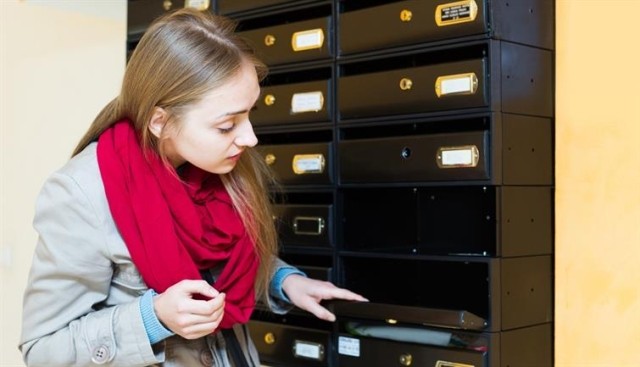When preparing to move out of a rental property, a key concern is the return of your security deposit. Unlike other upfront costs for renting an apartment, security deposits are refundable. A security deposit is usually a good chunk of money, so getting it back in full—and fast— is paramount.
The conditions for getting your security deposit back can be complex. Landlords may have grounds to keep some or all of it, leading to tenant frustration and financial stress. Security deposits are utilized by landlords and property managers to cover any damages that exceed normal wear and tear. Any significant repairs needed will be deducted from your security deposit after you move out.
This guide covers the key steps and tactics to help you secure the full return of your security deposit. From knowing your tenant rights to accurately documenting the property's condition, we offer practical advice to navigate this often stressful situation confidently. Whether you're saying goodbye to your first apartment or have years of renting experience, mastering these strategies can greatly improve your chances of getting your deposit back.
What to know before signing the lease
Do a walkthrough and take photos before moving in
What to do before moving out of your rental property
Stay organized to ensure a smooth move-out process
1. What to Know Before Signing the Lease
Securing the return of your security deposit begins long before you move out of the rental property. In fact, it starts before you even sign the lease agreement. Before putting pen to paper, carefully review the terms of the lease agreement. Make sure you understand your lease because if you don’t understand it or don’t read it, you have no way of knowing if you’ve met the conditions of your lease when you move out. Be sure to ask questions.
Sometimes, property managers will charge you for damage “beyond normal wear and tear.” What is that, exactly? Does it include any damage caused by your pet? Scratches on the door, for example? Write down any questions you have while reading the lease and review those questions with the property manager.
Also, be sure to pay close attention to clauses related to the security deposit, including how much is required, under what conditions it can be withheld, and the procedures for its return. Understanding your rights and obligations from the outset can further prevent misunderstandings later. After you have thoroughly reviewed the lease, it’s time to sign it and keep a copy for your records.
2. Do a Walkthrough and Take Photos Before Moving In
Now that you've signed the lease, it's time to step into your new home officially. But before you start moving in those boxes, there's an important task to complete—a thorough walkthrough of your new space. Start by giving each room a good once-over, checking for any signs of damage or wear and tear that you may not have noticed on the tour of the unit. Remember, it's not just about the big things—small details matter, too.
Look out for chipped paint, loose floorboards, or leaky faucets. You should be given a checklist by the property manager prior to moving in to document any issues. If not, creating your own checklist will help you avoid overlooking items you could be held responsible for later. Video or photograph the entire apartment and zoom in on defects that you find.
Here are some things to note on your checklist:
- Scratches on the wood floors/floorboards
- Discoloration or marks on the walls
- Chipped paint or holes in the walls
- Stains on the carpet
- Blinds that are broken or don’t work
- Windows that don’t open
- Chips or cracks in the windows
- Outlets – location, number, and if they work
- Any problems with window and door locks/security system
- Location of smoke detectors and if they’re working
- Lack of water pressure/toilets not flushing
- Cracks in tile
- Loose sink fixtures
- Any signs of mold, mildew
- Signs of pests (look under the sink and in the closets)
Look closely at everything and note anything that isn’t in top condition. Document everything. Yes, that tiny scratch on the kitchen counter might seem insignificant now, but it could be a point of contention when you're moving out.
Once you've completed your walkthrough, it's time to bring your landlord into the loop. Share your findings and make sure they acknowledge any pre-existing damage. It's a good idea to get this in writing, whether in an email or a signed document. That way, you're safeguarding your interests and ensuring that you won't be held responsible for any damage you didn't cause.
3. What to Do Before Moving Out of Your Rental Property
Before you move out of your rental property, there are a few things you should do to ensure you receive your full security deposit. Below are some tips to guide you through the process smoothly and efficiently.
Make sure you don't owe anything
Before you move out of your rental property, it's essential to ensure that you've fulfilled all your financial obligations to the landlord or property management company. Are you current on your rent? If not, this could jeopardize you getting your security deposit back.
The security deposit isn’t your last month’s rent payment. Your security deposit covers any damages or cleaning fees and is completely separate from rent. You may have paid the first and last months’ rent when you moved in. Be sure to check your lease to make sure that the final payment is covered.
Give proper notice to move out
Providing proper written notice to your landlord or property management company is a crucial step when moving out and ensuring the return of your security deposit. The required notification period for move-out should be clearly stated in your lease, and it can vary, so be sure to carefully review all leases you sign.
If your apartment community requires 60 days’ notice but you only provide 30 days, this short notice may violate your lease agreement. As a result, you might forfeit your security deposit, or your lease could automatically renew. Don’t wait for the property manager to contact you. You’re still responsible for giving the advance notice specified in your lease, and it should always be in writing. Never rely on a conversation or a voicemail message as adequate notice.
Clean and photograph your apartment
Cleaning your apartment thoroughly before returning the keys is the responsible thing to do and can help you with the full return of your security deposit. Campers will be familiar with the adage “Leave No Trace,” and these rules apply to your apartment when moving out, as well. Scrub it, then scrub it some more.
Take a top-to-bottom approach (fan blades and plant shelves, too). The closer you can get the apartment to how you found it, the smoother the move out process will go. Take pictures or video of the entire space in case any questions about the condition of the apartment arise later.
Use this cleaning checklist:
- Clean all appliances
- Wipe down kitchen cabinets and pantry shelves
- Clean the kitchen sink and countertops
- Remove any grease or dust from the overhead light and range hood
- Clean behind and the top of the fridge
- Clean the tub, shower, toilet, and sink
- Wipe down the bathroom vanity and clean the mirrors
- Vacuum and mop the floor
Schedule a move-out inspection
After you have cleaned your rental property from top to bottom, it’s time to schedule a move-out inspection with your landlord or property manager. This inspection serves as a last opportunity to review the condition of the apartment and address any potential issues that may affect the return of your security deposit.
To schedule a move-out inspection, email or call your landlord or property manager. Propose a few different dates and times for the inspection. This shows your flexibility and willingness to cooperate, which your landlord will surely appreciate.
Once you've got the inspection scheduled, it's time to prepare. You've already done a thorough cleanup, but it doesn't hurt to do a quick once-over before the inspection. Check that all appliances are in working order and that there are no outstanding repairs needed.
When the day of the inspection arrives, greet your landlord and guide them through the property. Be open to feedback and ready to discuss any potential issues. Remember, it's a conversation, not a confrontation!
Scheduling a move-out inspection might seem like just another task on your to-do list, but it's worth it. It's your chance to demonstrate the care you've taken of the property, and it's a crucial step towards getting your full security deposit back.
4. Stay Organized to Ensure a Smooth Move-Out Process
Between packing boxes, transferring utilities, and signing paperwork at your new place, you have a lot going on right now, and it might be easy to forget a few important steps. Once you’ve made the decision to move rather than renew, here are some things you need to do:
- Check your lease to see how much notice you have to give your landlord (usually 60 days)
- Write your notice to vacate letter within the required timeframe
- Return your keys along with a parking pass (if provided with one)
- Make sure the landlord has your new address (so that you can receive any final correspondence, such as a close-out letter and refund check)
Be sure to keep an open line of communication with your landlord or property manager before, during, and after your move. Remember: you want the apartment as close to its original move-in condition as possible.
Getting your full security deposit back might seem like a daunting task, but with a bit of planning and effort, it's totally within your reach. So, roll up your sleeves, put these tips into action, and look forward to that security deposit returning to you.
When you’re ready to move, Apartments.com is here to help with the best search tools, empowering you with advanced features to locate your ideal space quickly and easily.
Happy moving!
Frequently Asked Questions
Do I get my security deposit back if I end my lease early?
The return of your deposit depends on the lease terms and local tenant laws, which should also include information about breaking the lease. Read the lease agreement, speak with your landlord, or contact your local housing authority for guidance.
How long until I get my security deposit back?
Most states require landlords to return the security deposit within a specific timeframe, typically between 10 to 30 days after you move out. This period may vary depending on local regulations, so check your state’s laws for details.
What if I don’t get my security deposit back?
Many states require landlords to provide renters with a written itemized list of deductions within a certain number of days after moving out to explain why a deposit was partially returned or not returned at all. Contact your local housing authority for information and assistance.






